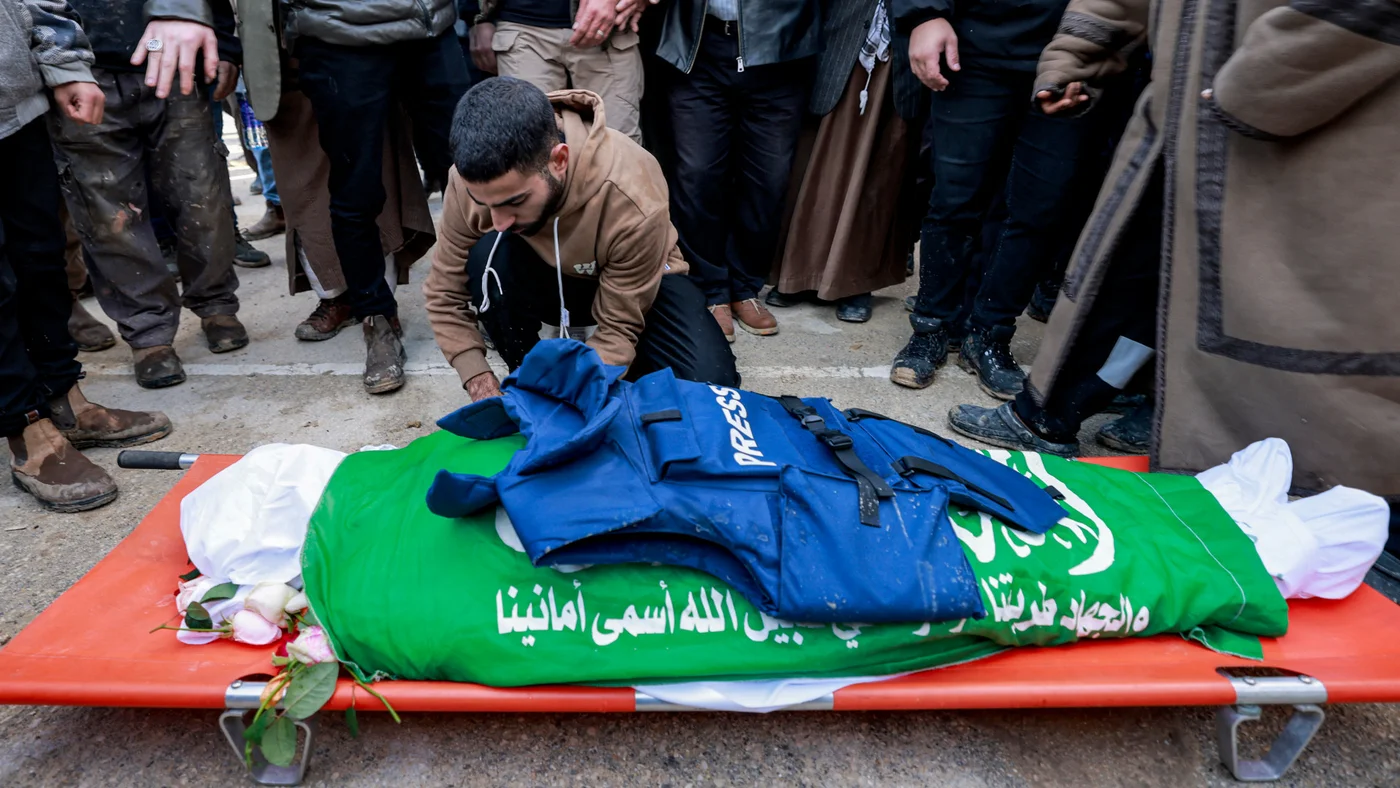How the Palestinian Authority became Israel's enforcer in the West Bank

On 28 December, a group of Israeli settlers attacked Palestinian farmers in the occupied West Bank town of Silwad.
In a video widely shared, two elderly Palestinian farmers could be seen bleeding from their faces and heads in a field of olive trees. Their car was smashed, and both were injured severely.
Such stories have become common as Israeli settler attacks in the West Bank have grown more frequent and brutal against Palestinians who are left without any protection.
Instead, the Palestinian Authority (PA), which has long functioned as a security arm of Israeli occupation forces, has dedicated its time and resources to launching raids against its own people.
On 29 December, PA security service snipers shot dead the young journalist Shatha al-Sabbagh, a 21-year-old intrepid reporter who had been documenting the PA's deadly campaign against armed groups in Jenin.
"It was clear that she was a woman with children," her brother Musab al-Sabbagh told Middle East Eye.
"Despite this, the sniper targeted her head the moment she left the door of the house," he added.
Deadly campaign
For several weeks now, the PA has been carrying out raids in Jenin, a restive city some 100km north of Jerusalem, with the aim of targeting "outlaws" and "militants" who it says have taken control of the camp.
Pretty much anyone protesting the deadly incursions, which have seen at least 16 people killed since mid-December, have found themselves in the crosshairs, including a father and son killed on 3 January.
Today, Palestinians find themselves more vulnerable than ever before, not only from Israeli-perpetrated violence but also from their purported leadership.
As the genocide rages in Gaza, Palestinians in the West Bank have suffered a record number of attacks in 2024 by Israeli settlers - an average of four per day since 7 October 2023 - while facing deadly strikes, forced evictions and displacement, violent raids, and other flagrant violations of international law while Israel carries out its annexation plan.
The silence of the West in the face of Israel's campaign of annihilation against Palestinians, let alone the diplomatic and financial support it receives, has emboldened the US-funded PA to wage a war of its own against its people.
A Palestinian columnist told me that PA security forces had hauled in five people after they wrote social media comments under one of his articles that were supportive of resistance groups.
The atmosphere has been so tense that some of my journalist friends have started publishing stories anonymously.
New enemy
For many Palestinians, living and working under the PA has always been tough, but I don't think anyone envisaged that the level of killings and arrests would reach such great heights.
It feels like the PA has found itself a new enemy, and it's not Israeli forces or illegal settlers.
One Palestinian activist told me bluntly: "They (the PA) are not interested in any resistance, and they are arresting anyone who is politically active or critical of the PA."
"It's all done under the pressure of the US and Israel. Any post on social media against either the PA or what they are doing in Jenin could see you arrested immediately."
For their part, Jenin's armed groups have rejected the way they've been characterised by the PA, saying their resistance is legitimate against an occupying entity.
Whichever way the PA has tried to spin it, the campaign has proved so divisive that a figure from Fatah - the main secular political party in the PA - that I spoke to said he was fundamentally at odds with the way the Palestinian leadership was treating the Palestinian people.
"The PA doesn't care about the Palestinian people - the only thing they want is to convince the Israelis and the Americans that they can achieve security in the West Bank."
"But the PA will not achieve this even if they have double the power. The reason is simple: the [Israeli] occupation produces resistance. It's a fact. As long as there's an occupation, there will be resistance."
His words were telling.
'Tool of occupation'
Last month, Axios reported that the PA's offensive in Jenin was being seen as critical for the future of the body, with President Mahmoud Abbas eager to send a message to incoming US President Donald Trump that he could manage Palestinian affairs.
So far, Israeli authorities have also welcomed the PA's crackdown, with the Israeli channel Kan reporting that the Israeli army even encouraged the offensive.
Quoting a senior Israeli army official, Kan said the Israeli army had held "consultations with senior Palestinian officials in order to optimise the activity in the refugee camp".
What's striking is that the PA's crackdown, which has also seen Al Jazeera's broadcasts in the West Bank suspended, comes as Israeli authorities continue to restrict any and all reporting coming out of Gaza.
The Israeli army's Arabic language spokesman, Avichay Adraee, has repeatedly made posts seeking to demonise Al Jazeera - a crucial voice documenting not only the devastation in Gaza but also the civil unrest and protests within Israel and the occupied West Bank.
In this critical moment, when Israel is engaged in multi-pronged assaults on Gaza, Syria, Lebanon and Yemen, the PA has once again presented itself as a tool of the Israeli occupation with its heavy-handed measures.
The views expressed in this article belong to the author and do not necessarily reflect the editorial policy of Middle East Eye.